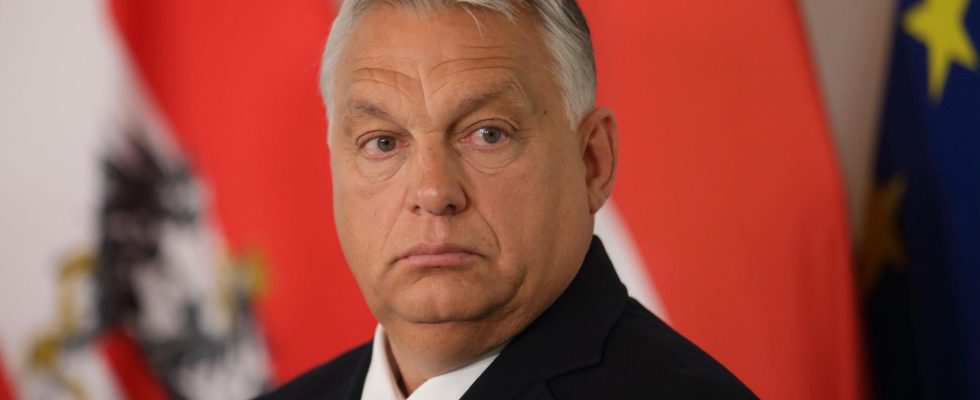1 / 5 Photo: Heinz-Peter Bader/AP/TT
A former liberal and acclaimed anti-Soviet activist has turned into a major headache for both the EU and Ukraine.
Viktor Orbán is the naysayer who can cause the EU year to land in chaos.
A common thread runs through the series of heavy contentious topics that the 27 EU countries will try to agree on before the turn of the year.
Extended long-term budget to primarily support Ukraine’s reconstruction? A migration pact to coordinate the rules around asylum? More money for military support for Kyiv? Membership negotiations with Ukraine and Moldova?
No, no, no and no, answers Hungary and its long-time Prime Minister Viktor Orbán. Thus, the entire EU machinery is put into feverish activity to find settlements at the last moment.
Add to that that Hungary is also one of two countries in NATO that until further notice blocks Sweden’s entry into the military alliance.
“Hello Dictator”
None of the EU countries’ current summit participants have been in their post as long as the 60-year-old from Székesféhervár. Nor has anyone been so diligently recalcitrant when it comes to getting along with the others.
Or by incurring criticism for all kinds of democratic and rule of law deficiencies.
– Hello, dictator, the then president of the European Commission Jean-Claude Juncker greeted Orbán with a happy grin before a meeting in Riga in 2015.
An innocent joke, it was officially declared. But still with a serious undertone. Under Orbán, the EU has launched a formal process against Hungary to investigate whether fundamental values have been violated.
The criticism has been bitter against increased state power over the courts, mass media and education system, hard-line action against asylum seekers and migrants and the view of homosexuals.
Prized liberal
Viktor Orbán began his political career as a liberal in the fight against the then Moscow-loyal Communist regime in his home country. He studied English and law at university and in 1988 was one of the founders of Fidesz – the Alliance of Young Democrats.
The movement quickly became popular and was also awarded abroad in 1989 with the Norwegian Rafto prize as “founder of a democratic Hungary”.
Soon it was also transformed into a political party, where party leader Orbán is called a “political prodigy” in one of the first TT texts where he is mentioned by name.
“Orbán is well-articulated, quick-witted and well-dressed. In the past year, he has also pushed through a streamlining of the party; grassroots democracy has been abolished, denim jackets have been replaced by suits and the upper age limit of 35 has been removed,” TT wrote before an election in 1994.
Putin and Trump
Over the years, Orbán and Fidesz have moved further and further to the right. In 2021, they were basically thrown out of the EPP, the collaboration between Europe’s major Christian democratic and conservative parties.
Orbán has instead stood out for meetings with far-right leaders such as French Marine Le Pen and Dutch Geert Wilders. He has frequently paid tribute to former US President Donald Trump and was happy to meet Russian President Vladimir Putin – most recently during a visit to China last autumn.
– If President Trump were president now, there would be no war affecting Ukraine and Europe, Orbán said at a meeting with America’s most conservatives this spring.
Inside EU summits, Orbán is said to often keep a low profile. He then takes it back with stinging saws at home, preferably in a recurring radio program on Fridays.
No “hungxit”?
Despite the critical words, Orbán has always been careful that he cannot imagine a “hangxit” and leave the EU, but on the other hand is happy to change the union. So far, all disputes have finally been resolved after various negotiations and concessions.
The constant conflicts are still eating away at the relationship and raise questions about how it will work when Hungary is to act as the country holding the presidency of the EU’s Council of Ministers in the fall of 2024 in six months’ time.
But perhaps there are several leaders who think as Orbán does – if public opinion goes in the same direction as, for example, in the Netherlands, where Wilder’s party PVV recently became the largest.
– Orbán is playing long-term. With Wilders and one or two more far-right leaders in Europe and a possible return for Trump, he may soon be less isolated than we think, says an EU official anonymously to the news site Politico Europe.
FACTS Viktor Orbán and Fidesz
Viktor Orbán (born 1963) is the Prime Minister of Hungary and party leader of Fidesz, which was created as a liberal youth movement in 1988, but has become increasingly conservative over the years.
The political breakthrough came in 1998 when Orbán became prime minister of a coalition government. From 2002, eight years followed in opposition but with growing support – not least since the then centre-left government in a notorious internal party report in 2006 admitted how they had lied to the voters. Since the spring of 2010, Orbán has been prime minister again, with Fidesz as the country’s largest party by far.
Orbán has been married to Anikó (née Lévai) since 1986 and has daughters Ráhel, Sára, Róza and Flóra and son Gáspár.
Read more
